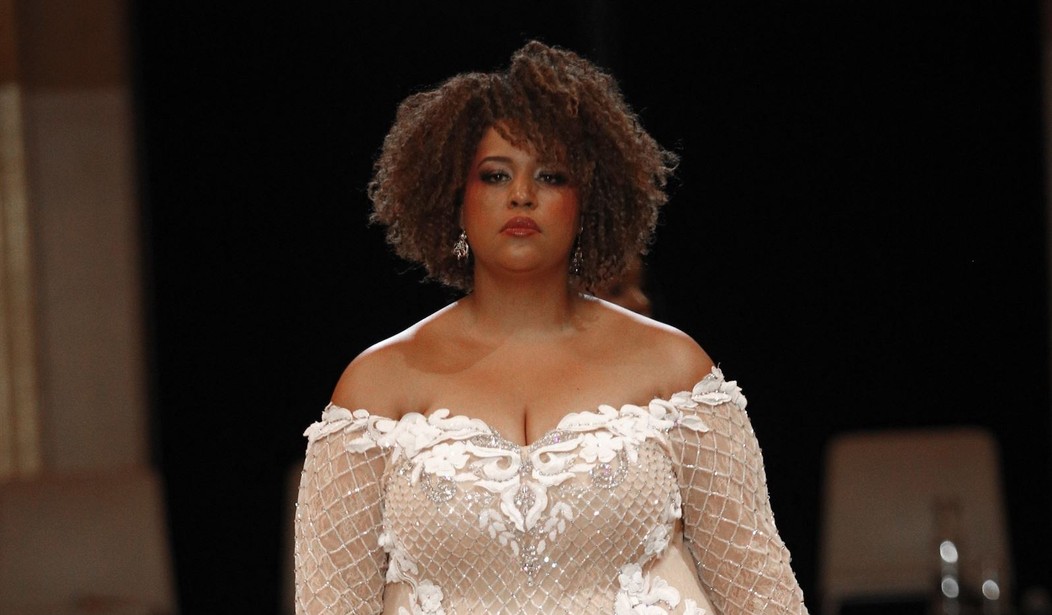“I wouldn't want to be a member of any club that would have me as a member.”
-Groucho Marx
The insular “fat acceptance”/”body positive” subculture is nothing if not massively self-contradictory (which, by the way, is one the reasons it must remain insular in order to survive; the internal contradictions must never be exposed to scrutiny by outside critics and threaten the mythology).
On the one hand, obesity is framed as a state of grace to be celebrated. On the other hand, it’s a “brain disease” to be treated medically. (What it never is is an adverse condition that is the responsibility of the individual.)
In public, #bodypositive Instagram models pose with all of their fleshy beauty for the world to behold and marvel out. In private, they are miserable and desperately would like to lose weight — sans any real self-discipline exercised obviously.
Related: The Atlantic Spreads Pseudoscientific Myth That Ice Cream Is Healthy
If losing weight were as easy as snapping one’s fingers, with no sacrifice, they’d all do it.
But it’s not so easy, so the alternative is to set up a subculture dedicated to collective self-delusion that “fat is beautiful” to suppress the inevitable feelings of self-loathing that accompany obesity.
These internal contradictions are on full, cringe, juicy display in a recent brewing civil war over said influencers hawking “miracle weight loss drug” Ozempic to their followers.
Some of them happily take the pharma money, inject themselves on camera for clout, and try to slim down.
Others want to hang onto the delusion that achieving a healthy weight is not the ideal for long-term health. If they allow any cracks in the narrative — like that being a human-whale hybrid is actually not the most desirable of human forms — the entire ideology, and hence subculture, and hence their source of self-identity, is at risk of collapse.
And so we have a sort of Social Justice™ civil war on our hands.
Via Washington Post (emphasis added):
When Virgie Tovar got an email asking her to promote injectable weight-loss medications on her social media, she thought it was spam.
As an activist, she had spent the last 13 years espousing body positivity and fat acceptance. Why would she promote drugs like Ozempic on her Instagram account?
But the offers to promote companies proffering drugs like Wegovy and Ozempic kept coming in.
And then she saw fellow fat activists posting screenshots of similar emails they had received. They came from a variety of marketing agencies and ‘med spas’ (medical spas) with names like Valhalla Vitality, Toma Skin Therapies and The Hills Beauty Experience, promoting injectable drugs for weight loss.
‘That was when it started to register that this might be something that is very widespread — that’s strategic,’ she said.
Tovar was right. The emails she received were part of an industry-wide strategy to market injectable weight-loss medication via plus-size influencers. Tovar and other activists have started spreading the word on social media and speaking to the press.
As profits explode from sales of its drugs Wegovy and Ozempic, Novo Nordisk has created marketing campaigns that address body-positive communities. WeightWatchers is hyping its new WeightWatchers Clinic, focused on injectable weight-loss drugs, via paid promotions with social media influencers.
This push from the weight-loss industry is creating ideological rifts in body-positivity communities.
Jessie Diaz-Herrera, who is a plus-size certified fitness instructor*, posted an Instagram video saying that if she received another partnership offer from a company selling medical injectables she would throw her computer.
*That such a position as “plus-size certified fitness instructor” exists at all is a testament to the unserious clown world that is the modern West. This title would never exist in places like East Asia, where the people still value reality over narcissistic self-indulgence, and shame is still an effective social tool.
Continuing:
If some of your favorite fat influencers start doing paid campaigns for this stuff, it’s because they sold themselves into diet culture, period, she said in the video, using an expletive.
The new marketing campaigns have raised existential questions for plus-size internet personalities about what constitutes medical autonomy, self-love and self-acceptance.
“There’s a bit of a wasp’s nest going on in the body positivity community online where people have been flooded with invitations to partner with weight loss drug companies,” said Kara Richardson Whitely, the CEO of the GORGEous Agency.
Part of the GORGEous Agency’s business is connecting companies to body-positive influencers. Richardson Whitely said the uptick in partnership opportunities from injectable weight-loss companies has raised red flags for some clients.
“It’s an affront for people who have worked so hard to come to a place of body acceptance or body appreciation and debunk diet culture,” she said.










